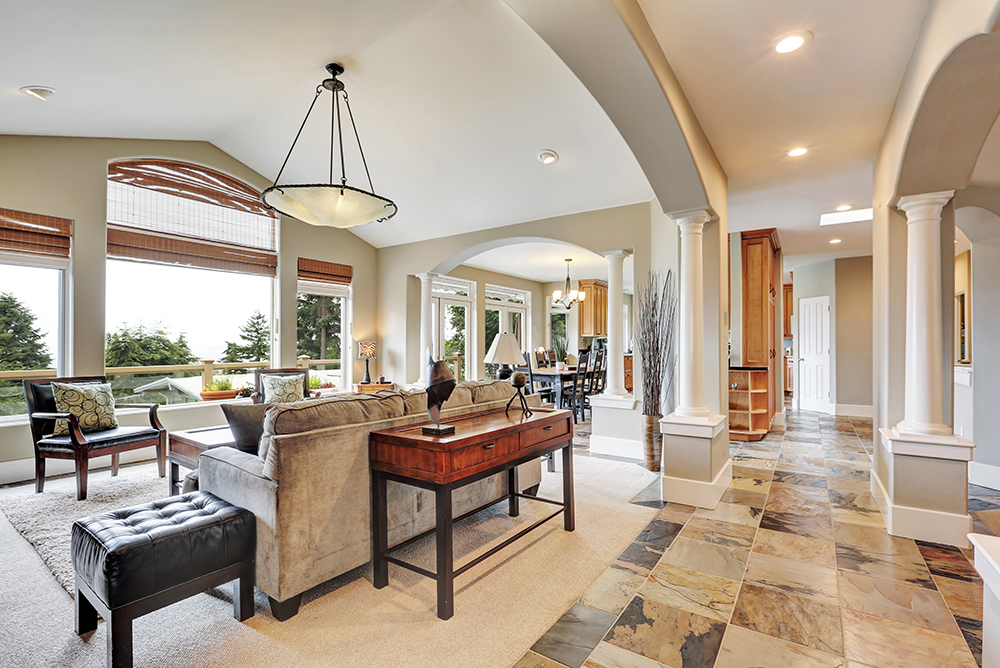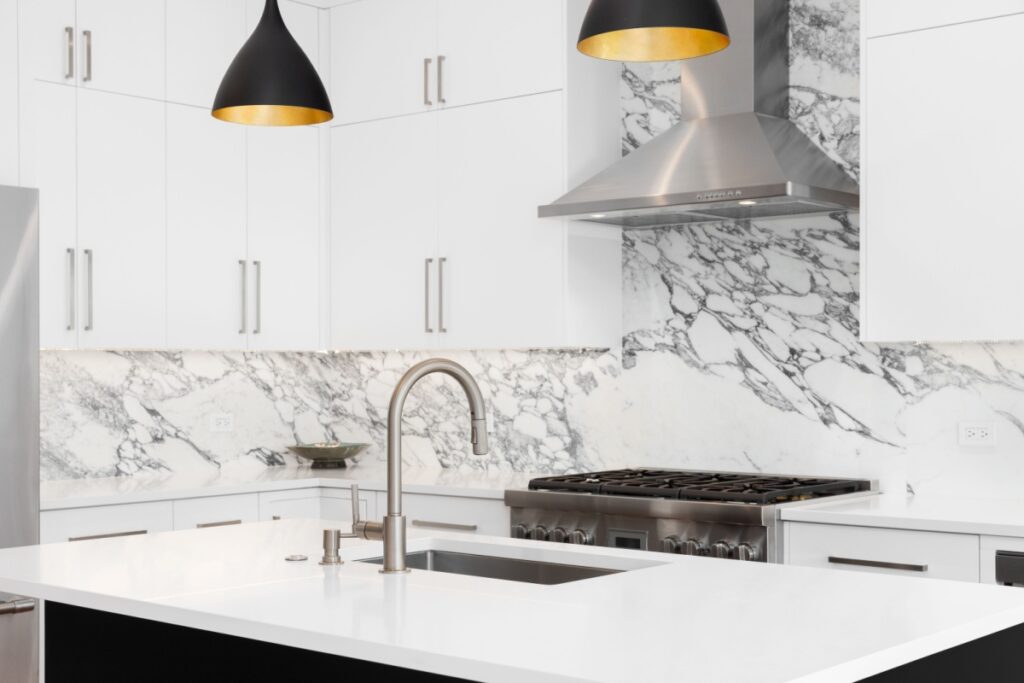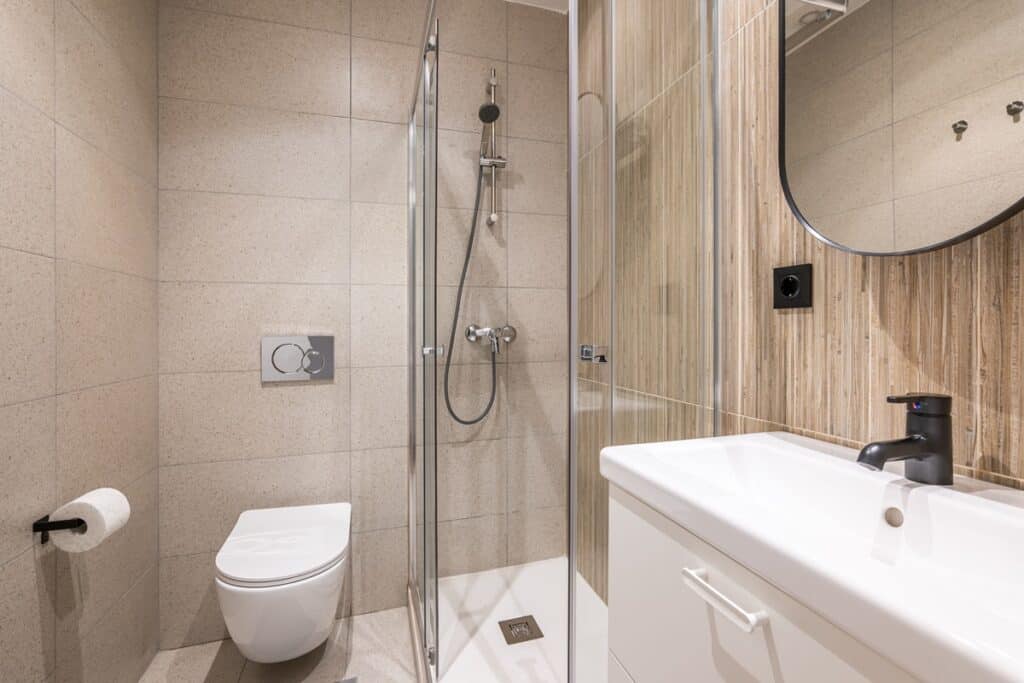If there’s one addition that can make any kitchen look classy it’s a natural stone worktop. From white quartz to black marble, it’s hard to deny the sheer beauty of polished natural stone, not to mention its impressive durability.
Today we’ll be taking a look at some of the most popular types of natural stone worktop, their distinctive looks, and how you can tell them apart.
Granite
Starting with a classic, granite is one of the most popular worktop materials in the world and it’s not hard to see why. Known for its distinctive mottled pattern, granite is a very long lasting material that is very unlikely to need upkeep or repairs. Granite worktops are heat resistant and are quite hard to damage. If you’re looking for a beautiful natural stone worktop that will look the same a decade after it’s installed, then granite is almost certainly the way to go.
Maintenance: Low
Marble
On the opposite end of the spectrum, a marble worktop – though beautiful – will change a lot over the course of its lifetime. Over time, marble tends to pick up marks, scratches, and even stains, which can bother some homeowners. That being said, some refer to these marks as a patina and feel that it gives marble a pleasantly aged look. If that’s not for you then you can also have your marble worktop regularly resurfaced though, for many, the cost of this is a turn off!
Maintenance: Medium
Slate
Like all natural stone worktops, slate is a beautiful material, but it’s also quite high maintenance. While it is resistant to many cleaning chemicals, it’s also highly porous and can even begin to flake over time.
Furthermore, it’s also worth noting that slate worktops often have more seams than other types of natural stone worktop, as slate tends to come in smaller slabs.
Maintenance: High
Quartz
Last but certainly not least we have quartz. Perhaps not as well known as the other choices on this list, quartz worktops have become increasingly common in recent years as a non-porous, stain-resistant material with all the aesthetic benefits of a natural stone but many of the advantageous qualities of an artificial material.
That being said, quartz does have some flaws. For example, although it is very resistant to scratches and stains, it isn’t resistant to heat. Furthermore, darker shades of quartz can fade in direct sunlight so if you’re looking for a long-lasting material with a strong colour then you’re probably better off with granite
Maintenance: Medium
Natural stone worktops are a gorgeous addition to any kitchen, but it’s important to do some research before you pick a material. For more information about the right material for your kitchen worktop, you can contact us at 01273 516 162.













